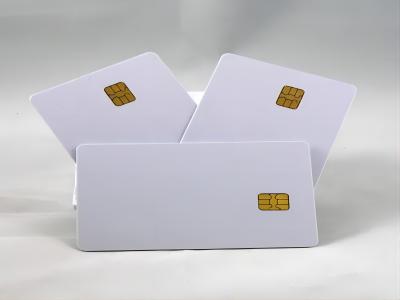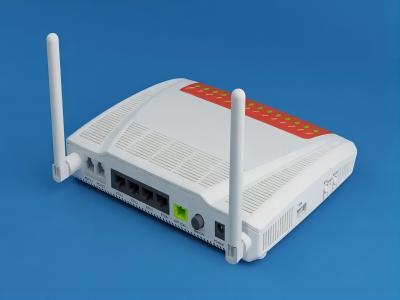What are the advantages of using lithium iron phosphate for
Lithium iron phosphate is a lithium-ion battery material that is widely used in pouch batteries. Compared with other lithium-ion battery materials, lithium iron phosphate has some unique advantages:
High energy density: Lithium iron phosphate batteries have a higher energy density than other lithium-ion batteries, which means more energy can be stored in the same volume or weight. Lithium iron phosphate is a battery material with high energy density, and its energy density is generally around 160-180 Wh/kg. This means that within the same volume or weight, lithium iron phosphate batteries can store more energy than other lithium-ion battery materials. However, it should be noted that the energy density of the battery is not the only indicator for evaluating battery performance. There are many other factors that also affect battery performance, such as battery voltage, cycle life, safety, environmental adaptability, etc. When choosing a battery, you should comprehensively evaluate various factors and choose the most suitable battery based on your specific needs.
High safety: Lithium iron phosphate batteries have high safety and are not prone to pyrolysis and explosion under normal use conditions. Lithium iron phosphate is a lithium-ion battery material that has high safety under normal use conditions. Compared with other lithium-ion battery materials, lithium iron phosphate batteries are safer. On the one hand, lithium iron phosphate batteries have a low self-heating temperature and are not prone to pyrolysis under normal use conditions. On the other hand, lithium iron phosphate batteries have high voltage stability and are not prone to overvoltage during charging and discharging, thereby avoiding the risk of explosion. However, it should be noted that lithium iron phosphate batteries also have some limitations. For example, the safety of the battery may be reduced when used in high temperature environments. Therefore, when using lithium iron phosphate batteries, care should be taken to avoid exceeding its operating temperature range to ensure the safety of the battery.
Long life: Lithium iron phosphate batteries have a long cycle life, generally reaching 500-1000 charge and discharge cycles, which is much higher than nickel metal hydride batteries and lead-acid batteries. Lithium iron phosphate is a battery material with a long life, and its cycle life can generally reach about 500-1000 times. This means that using lithium iron phosphate batteries can maintain high performance for a longer period of time. Compared with other lithium-ion battery materials, lithium iron phosphate batteries have a longer cycle life, which is much higher than nickel-metal hydride batteries and lead-acid batteries. Therefore, lithium iron phosphate batteries are widely used in applications that require long life, such as mobile devices and energy storage devices. However, it should be noted that the life of the battery is also affected by many factors, such as the number of charge and discharge cycles, charge and discharge speed, usage temperature, etc. Therefore, when using lithium iron phosphate batteries, attention should be paid to controlling the number of charge and discharge cycles and avoiding use in high temperature environments to extend the life of the battery.
Environmental protection: Lithium iron phosphate battery is a mercury-free battery and has little impact on the environment. Lithium iron phosphate is a mercury-free battery material that has a low impact on the environment. Compared with other lithium-ion battery materials, lithium iron phosphate batteries have better environmental performance. During use, lithium iron phosphate batteries do not produce harmful substances or cause pollution to soil and water. When discarded, lithium iron phosphate batteries can also be recycled and reused to reduce their impact on the environment. In addition, lithium iron phosphate batteries also have a high recycling rate, which can reduce the consumption of raw materials through recycling and regeneration, thereby reducing the impact on the environment. Because lithium iron phosphate has good environmental performance, it has less impact on the environment during use, and it can also be recycled and reused to reduce the impact on the environment when it is discarded.
Good low-temperature performance: Lithium iron phosphate batteries have better performance under low-temperature conditions and are suitable for low-temperature environments. The common lowest operating temperature of lithium iron phosphate batteries is generally around -20°C, and the battery performance can be maintained well at around -10°C. At higher temperatures, the performance of lithium iron phosphate batteries will further improve. It should be noted that when the battery is charged under low temperature conditions, the charging current should be appropriately reduced to avoid low charging efficiency caused by overcooling of the battery. As a battery material with good low-temperature performance, lithium iron phosphate can be used in low-temperature environments. During use, attention should be paid to controlling the charging current to ensure battery performance.
Small size: Lithium iron phosphate batteries are relatively small and can be used in thin and light mobile devices. The size of lithium iron phosphate soft pack battery depends on its capacity and voltage. Generally speaking, the volume of lithium iron phosphate soft pack batteries decreases with the increase of voltage under the same capacity conditions, and increases with the increase of capacity under the same voltage conditions. For example, generally speaking, the volume of a 3.2V, 20Ah lithium iron phosphate soft pack battery is about 160mm110mm60mm, while the volume of a 3.7V, 20Ah lithium iron phosphate soft pack battery is about 150mm70mm60mm. It should be noted that the battery sizes produced by different manufacturers may be slightly different, so when choosing a battery, you should pay attention to comparing the battery sizes of different brands and specifications to match the device.
When selecting soft-pack lithium iron phosphate batteries, you should pay attention to the following points:
Battery Capacity: Determine the required battery capacity so you can select the appropriate battery.
Battery voltage: Choose the appropriate battery voltage according to the voltage requirements of the device.
Battery size: Size your battery to fit your device.
Brand: Choose a more reputable brand to ensure battery quality.
Price: Compare battery prices of different brands and specifications, and choose the right battery based on budget and cost-effectiveness.
Transportation and storage: Pay attention to the transportation and storage conditions of the battery to ensure the safety of the battery during transportation and storage.
Warranty period: Understand the warranty period of the battery so that you can get better after-sales service during the warranty period.
Other requirements: According to your specific requirements, choose a battery with special functions, such as waterproof, shockproof, etc.
"


